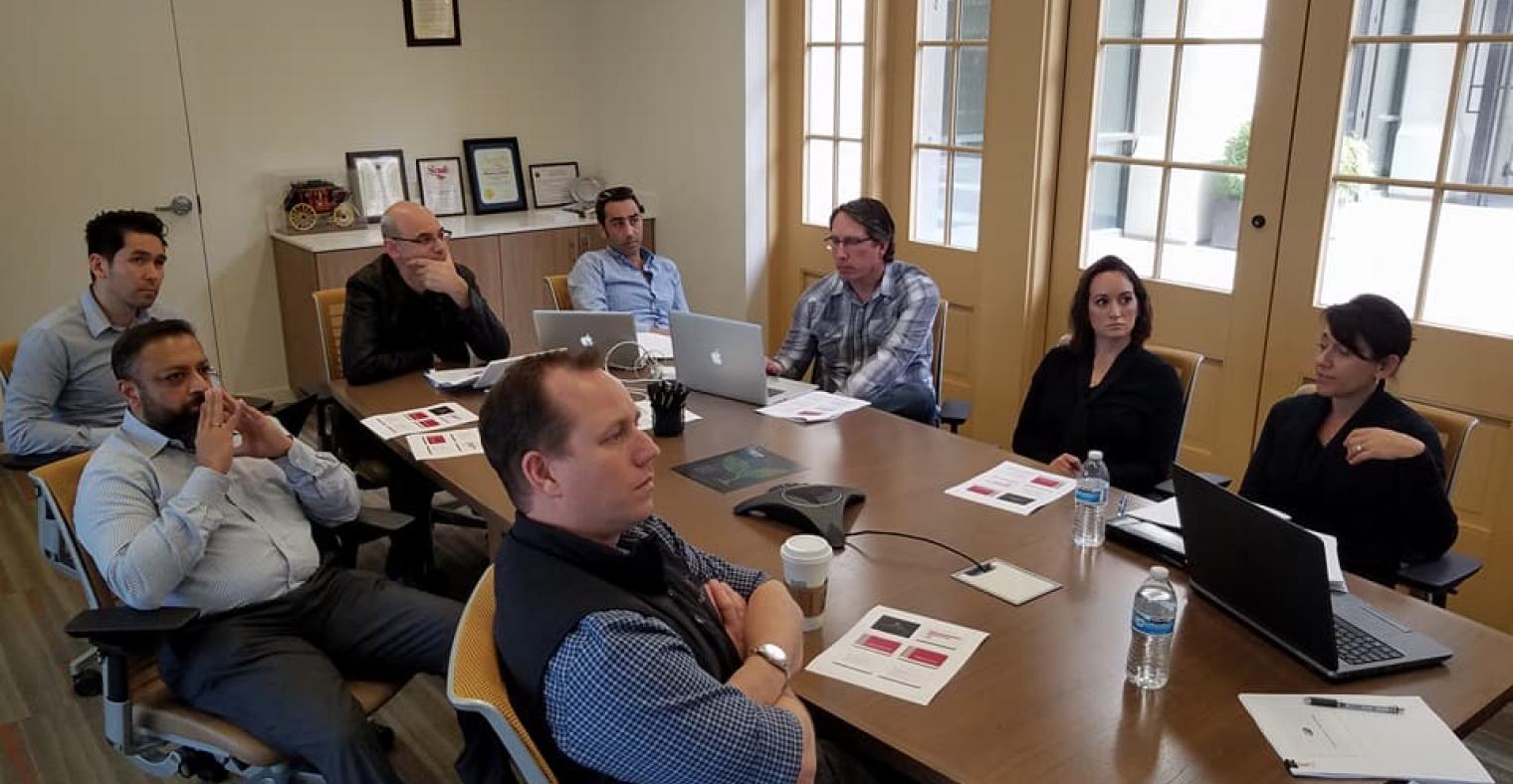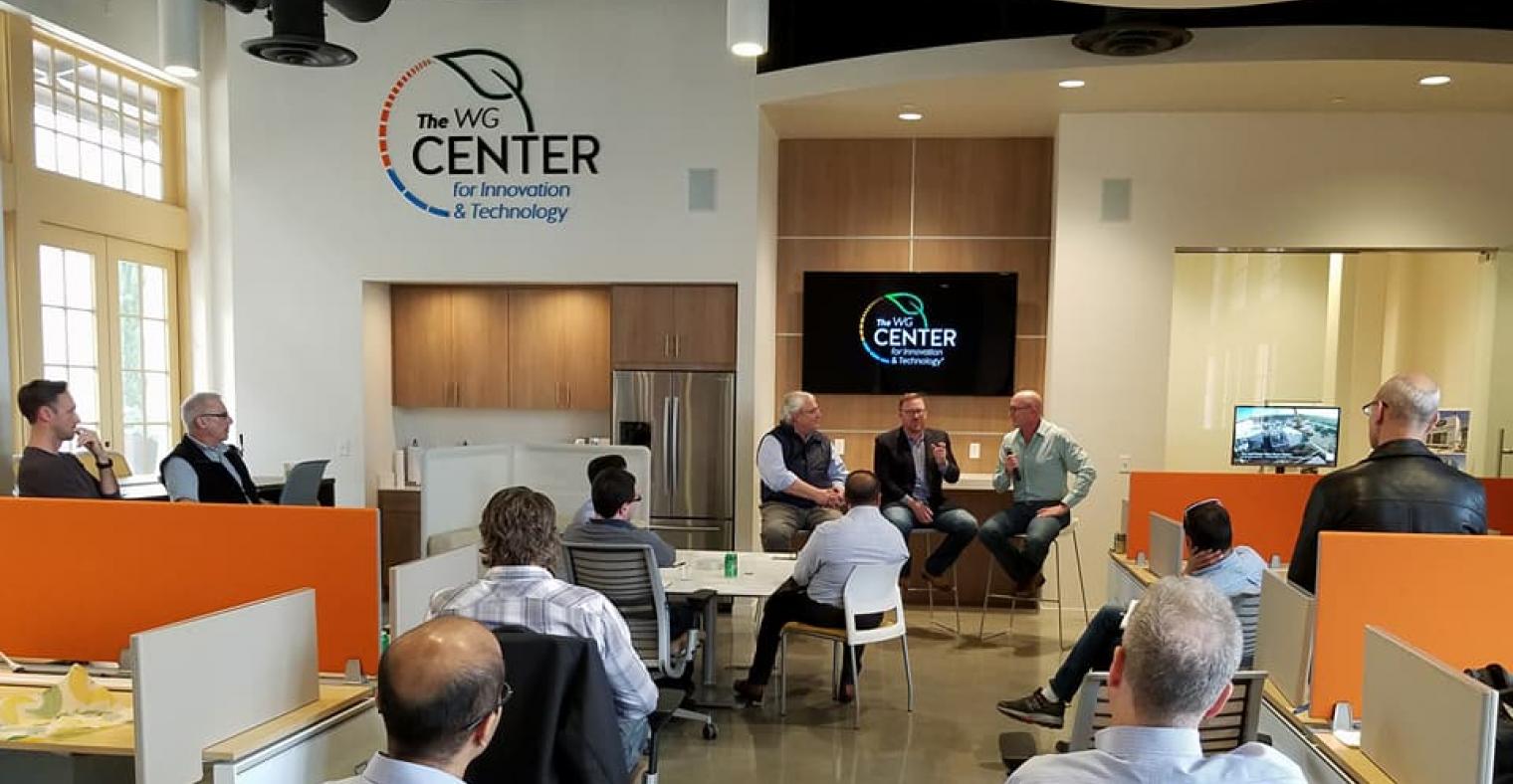Resident Town Hall at the WGCIT
Posted on January 30, 2018 14:28 PM by WGCIT
The Western Growers Center for Innovation & Technology (WGCIT) launched its first Resident Town Hall on Monday, January 29, 2018. More than 15 agtech start-up companies housed in WGCIT participated in a variety of events throughout the day.
Dennis Donohue, lead of the Center, started the day with a roundtable discussion detailing upcoming events, such as the Innovation in the Imperial Valley summit taking place on February 8th in Brawley, and resident programming changes, like the new format for Tech Talks. Dennis also unveiled his plan for connecting agtech startups to the grower populations in the different growing regions throughout California, Arizona, Colorado, and New Mexico.
The second portion of the day was devoted to meeting with Hayashi Wayland’s accounting partners. Hayashi Wayland (HW) is a leading ag accounting firm in California and a sponsor of the WGCIT. HW discussed the new tax laws that will influence startups, as well as the grower community that the residents interact with. HW was available after their presentation for individual questions, which is a huge benefit to the startups doing their own accounting. This was great timing, as many of the WGCIT companies are currently working on their 2017 tax returns.
The third part of the program was a fireside chat with Indus Holdings. The CEO and co-founder of Indus Holdings and Altai Brands, Robert Weakley, and the Chief Compliance Officer of Indus Holdings, Kelley McMillan, spoke to all the startups about the changing business environment surrounding cannabis. Their growing operation contributes to their edible cannabis business, Altai Brands, so they consider themselves ‘farmers.’
Cannabis growers have many of the same pain points that mainstream greenhouse growers struggle with and are looking for solutions and investments. Kelley McMillan is the retired police chief of Salinas, and he has been working to sort out legislation and permitting surrounding Indus Holdings. Kelley pointed out that there are four governing bodies that oversee cannabis growing, and within each of those divisions, Indus Holdings has to maintain a Recreational License and a Medicinal License (for a total of eight licenses to sustain). Robert discussed the pain-points of cannabis growers: pesticide standards, over-watering, humidity, pH measuring, light sources (LED is current industry standard), growing cycles, odor drift, sensors, labor, and packaging. Currently, many of the packages require the ‘flour’ to be hand-packed, which is incredibly time consuming and increases the odds of human error. Cannabis cannot use the fruit and vegetable standard of ‘organic.’ Organically-grown cannabis is labeled ‘enviroganic.’
The fourth part of the day was two-fold. The field operations team from Tanimura & Antle (T&A) came to the WGCIT to meet with the startups. The WGCIT resident took turns doing “speed rounds” with T&A, showing them their technology and getting their immediate feedback. T&A was generous with their time and stayed to meet with all the attendees and answered all of their questions. As a bonus for participating in the Town Hall, the startups were invited to get their professional headshots with Oliva Bernal Photography during the one-on-one sessions with T&A.



